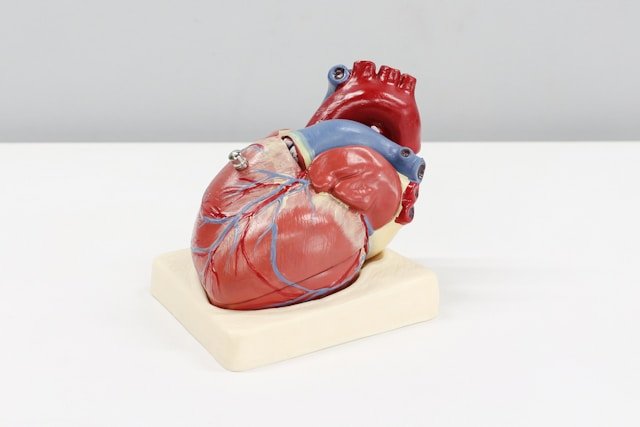It turns out that vegetarians have advantages when it comes to getting heart disease, including heart attacks and strokes. Vegetarian diets are beneficial for heart disease for several reasons, including the following:
- A vegetarian diet is low in saturated fat. Most saturated fats in the diet come from meats and vegetarians, by definition, do not eat meat. They get some fat in dairy products if they choose to have dairy in their diet and plant oils contain unsaturated fats, which are much healthier for you. Saturated fat often turns into cholesterol, which lines the arteries in critical places, causing blockages of arteries supplying the heart, the brain and the peripheral vascular system. Vegetarian diets contain practically no cholesterol, so arteries remain open and flowing to crucial body areas. Former meat eaters who choose to eat vegetarians can reduce arterial plaque.
- Vegetarian diets are low in calories, thus combating obesity. People who are obese carry a greater risk of heart disease. Adopting a no meat, vegetarian diet can promote weight loss and reduce the risk of obesity-related diseases. People who eat a vegetarian diet can reduce their body mass index to 25 or less. A normal weight person has a body mass index of between 18 and 25, as calculated by taking the weight in pounds and dividing it by the height in inches, and multiplying that number by 703. This is a calculated number worth knowing if you are at risk for heart disease by virtue of family history, hypertension, or other risk factors.
- Vegetarian diets are high in soluble fibre. Soluble fibre in the diet can absorb any cholesterol that might otherwise be absorbed into the system and contribute to arterial plaque. Great sources of soluble fibre in a therapeutic vegetarian diet are found in barley, whole grains, vegetables, beans, and apples. All of these foods are welcome in a vegetarian diet and will do double duty as good nutrition and in lowering cholesterol.
- Plants consist of healthy oils. Plants contain healthy oils that provide your body with necessary fatty acids without the saturated fat found in animal fats. Even a vegetarian diet needs a certain amount of fat in order to promote cell wall growth, for brain health and other vital chemical processes in the body. Vegetarians who try to exclude unsaturated fat from their diet will not be as healthy as those who put plant oils in as part of the vegetarian program. Plant oils are fats taken from the seed of plants, they include: avocado seed oil, coconut oil, flax seed oil, grapeseed oil, hemp oil, olive oil, Safflower seed oil, sesame seed oil, and soybean oil, just to name a few.
- There are other plant chemicals healthy for the heart and which combat heart disease. The risk of heart attack and stroke is further lessened by eating fruits and vegetables containing phytosterols and other plant antioxidants. There is much research left to be done on how plants exactly prevent heart disease, but it is believed that the molecules and phytonutrients in a vegetarian diet help fight heart disease in many different ways.
Speak to your doctor or nutritionist about ways you can use a vegetarian diet as a way to reduce your heart disease risks.



